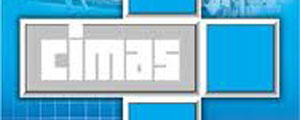
THE Competition and Tariff Commission (CTC) should be applauded for dealing firmly with CIMAS Medical Aid Society after it found the society guilty of shortchanging members seeking medical cover.
NewsDay Editorial
The CTC and other relevant authorities should continue to closely monitor medical aid societies and ensure that members are not ripped off through unethical practices that include unnecessarily high premiums, long waiting periods, failure to settle claims to medical and health service providers and other unreasonably restrictive measures.
Recently, CIMAS introduced a raft of restrictive measures that exposed its members more to financial and psychological worries than peace of mind.
The CTC unearthed, for instance, that CIMAS was refusing to reimburse medical claims made by its members for dialysis procedures done at B Braun Avenues Dialysis Centre while at the same time directing members to Harare Haemodialysis Centre, where it has a controlling shareholding.
CIMAS members have also expressed outrage over the medical aid society’s cost rationalisation that resulted in, among other things, providing cover for hospital expenses not exceeding two days for a normal maternity delivery.
It cannot be over-emphasised that in essence, medical aid should protect a member financially should there be need for medical or healthcare.
But when medical aid causes what members perceive as exposure of their financial shortfalls when they seek healthcare or when it shifts goalposts against their expectations, then it ceases to be a credible form of insurance.
- Chamisa under fire over US$120K donation
- Mavhunga puts DeMbare into Chibuku quarterfinals
- Pension funds bet on Cabora Bassa oilfields
- Councils defy govt fire tender directive
Keep Reading
Customers need protection from unscrupulous transactions by medical aid societies.
Such organisations have only one aim—to fleece the public of their hard-earned cash. People do not just join medical aid schemes, they do so on the basis of envisaged benefits as promised by respective medical aid societies.
When such medical aid societies turn around and betray their members, they must be severely punished. In fact, the punishment should be severe enough to serve as a deterrent to the like-minded.
Medical aid societies must serve the interests of customers and stop ripping off members by implementing restrictive measures and by charging unsustainable shortfalls.
They should execute their duties in a manner that serves the interest of the public that gives them their hard-earned cash in good faith.











